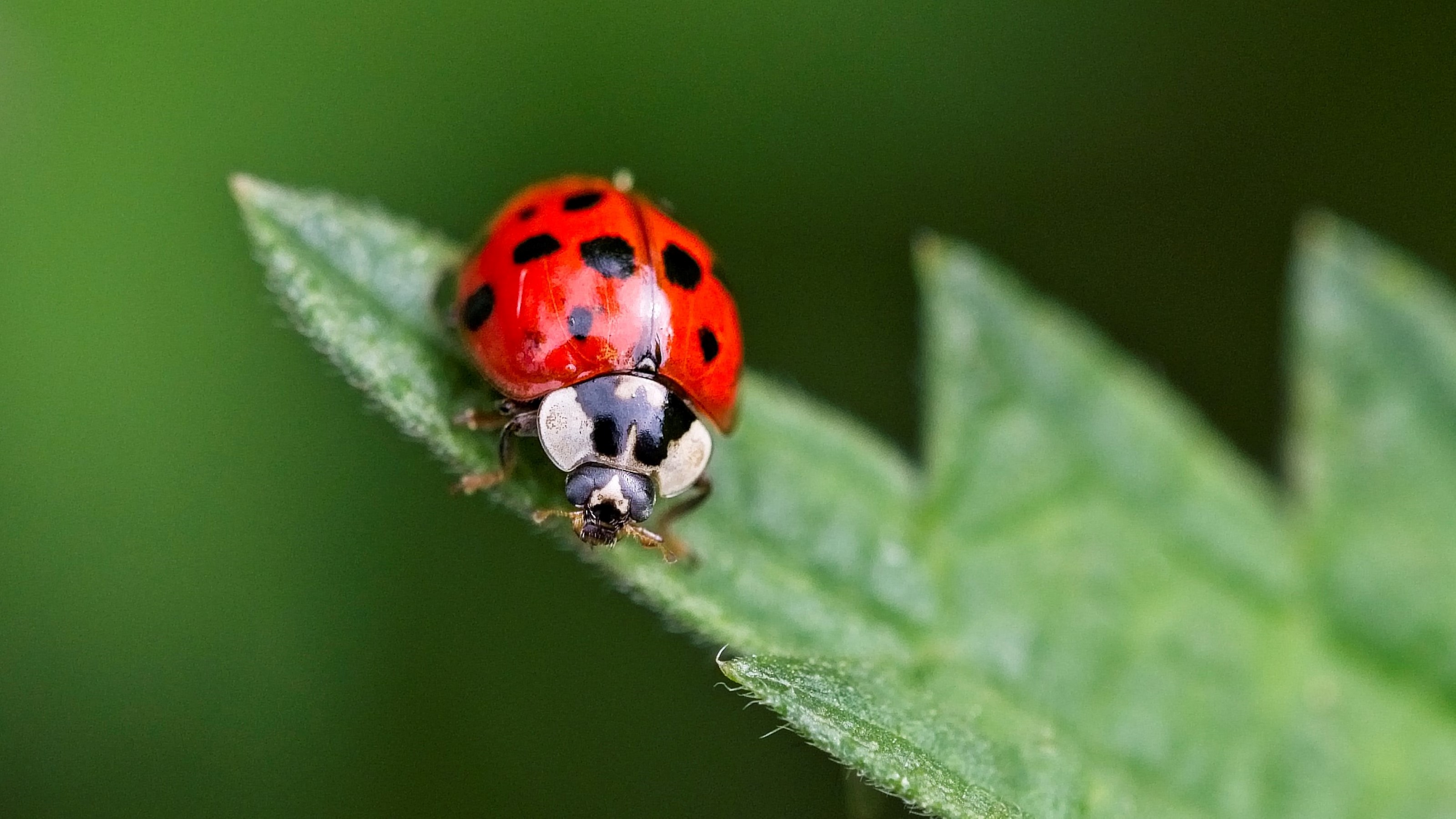Where to buy ladybugs
Find out where to buy ladybugs, and what they're useful for in your yard

Want to know where to buy ladybugs? Ladybugs are a beneficial insect that many gardeners use as natural pest control. These small bugs are easily identifiable thanks to their polka dot markings and red color. The best thing is that ladybugs are completely harmless to humans. They don't bite and generally don't pose any problems for your garden and home, although they may choose to overwinter in your door or window frame if you have many of them and your winters are cold.
One of the best choices for natural garden pest control, ladybugs will protect your crops without the need to reach for harsh pesticides. But where to buy ladybugs? And when should you do it? We answer your questions plus, why these bugs are so beneficial to your garden.
Where is the best place to buy ladybugs?
You may also be able to buy ladybug larvae at your local garden supply store, although not all of them will have them. It's often best to ask if they'd be able to source some for you. Otherwise, you may just want to get some from a neighbor's garden if they have them.
Note that you cannot buy ladybugs from overseas sellers because of strict wildlife import laws. If you do come across an overseas seller promising to ship to you, do not buy from them, because you likely never will receive your ladybugs as they wouldn't clear border control.
What are ladybugs useful for?
Ladybugs are commonly used in garden pest control, both in kitchen gardens and in growing garden plants. Ladybugs eat many garden pests, especially aphids. Almost any vegetable with fleshy stems can be destroyed by aphids, which is very frustrating if you're trying to grow your own. Valuable flower cultivars such as dahlias and roses are especially vulnerable to aphids, which makes their presence doubly annoying. They seem to go for only the best of what's in your garden and yard.
Ladybugs destroy aphid colonies by laying their eggs in their midst. Once ladybug larvae hatch they begin to intensively feed on aphids, without damaging your plants in any way.
It is important to note that there are a couple of species of ladybugs that originate in Mexico that feed on plants instead of garden pests, so you need to make sure that you buy your ladybugs from a place that will sell you the correct species for garden pest control.
Get small space home decor ideas, celeb inspiration, DIY tips and more, straight to your inbox!
When should I buy ladybugs?
Ladybugs are typically sold between March and August, so throughout spring and into late summer each year. This is the time when the bugs are actively breeding and producing the pest-destroying larvae you need in your garden. You won't be able to buy ladybugs in winter as they are in a dormant state.
Will ladybugs colonize my home?
Some people worry that if they get ladybugs to tackle pests in their garden they will eventually end up with a house full of them. Should you worry about ladybugs invading your home?
To answer that question you'll have to think a bit like a ladybug. And, as it turns out, ladybugs think in much the same way we humans do. They want to maximize their food sources, warmth, and comfort. So long as they get that outside, they won't be interested in entering your home.
However, if you have large numbers of ladybugs in your garden and then get a cold winter, some of those ladybugs may find it tempting to spend the winter in a doorframe or window frame of your house. Don't worry, though - they won't cause any structural damage and they also won't fly around your home. They'll just hibernate for a few months and leave when it gets warm again.
If you do find that you don't like ladybugs in your window frames, you can look into ways to get rid of the ladybugs. Or you can install a ladybug house from Amazon outside; chances are, they'll prefer to live inside that rather than your home.
Anna is a professional writer with many years of experience. She has a passion for contemporary home decor and gardening. She covers a range of topics, from practical advice to interior and garden design.